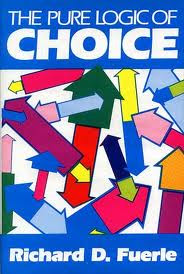
Freeman here.
Yesterday's NYT spoke to the meltdown in Greece and the resulting "JUNK" rating of their mounting debt. For those not aware of the rating agencies and the problem with this lower rating-when an entity's debt gets downgraded, it is more expensive to borrow money. So you can either temper your spending on your own, or the rating agencies will downgrade you (once your debt load gets too high) and borrowing the money becomes prohibitively expensive-- so hopefully, the sheer expense tempers said spending. Think "we can either do this the easy way, or the hard way."
Even on a micro level, this situation makes perfect sense- banks check creditworthiness with debt-to-income ratios, credit scores, etc. If someone's debt-to-income is spiralling out of control, a bank will not lend them money. If however, the person is willing to pay a much higher rate for a loan (credit card, check-in-go), the "bank" would be more likely to lend the money. Credit agencies look at the situation and assess the strength of an entity (Greece). Because Greece has huge amounts of debt, the agencies rate them JUNK which signals to the lenders that they need to charge higher rates (if you are going to lend Greece money at all) becasue they are marginally less creditworthy than a couple of days ago. JUNK status simply signals high risk.
The U.S. can learn a lot from the Greek situation.
President Obama said yesterday his brand new Fiscal Responsibility and Reform Commission (the "Deficit Panel") would study the deficit problem carefully and all options are "on the table." To be sure, the Deficit Panel should not have study the problem very carefully. The solution is relatively simple- there are INPUTS and OUTPUTS- money coming in (taxes) and money going out (spending). If you spend more money than what you are bringing in, you will be in debt. If you do that for a long period of time, it is likely you will have high amounts of debt. Currently the US deficit is just under $13trillion in debt. The 5th largest single item in the budget is Interest on Debt- this is just one of the ways the Greek Tragedy ties into our situation.
I believe in the Deficit Panel. These are smart people. We can do it. We can learn from the Greeks. We can take the easy way or the hard way.
Greek Tragedy to be continued- we will explain why ALL options (i.e. choices) should NOT be on the table.


